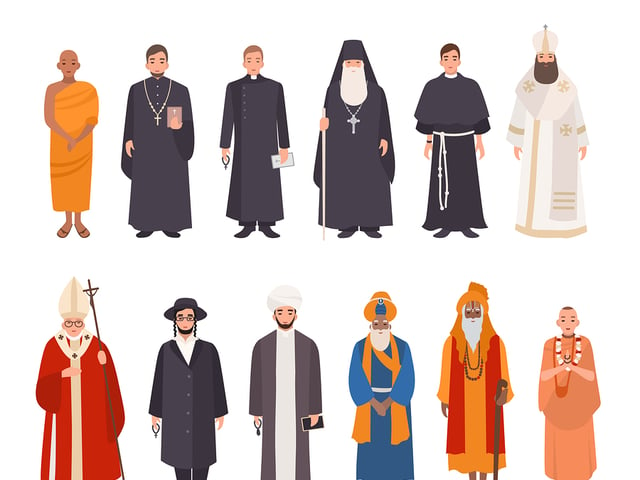
Patient Differences: Religious, Ethnic, and Cultural
Caring for any patients requires meeting their emotional and mental needs in addition to their physical ones. This may involve any religious, ethnic, and cultural considerations. This concept is a key part of the CNA’s daily tasks, but it is often overlooked. In addition to that, it can be very difficult to meet their needs in a healthy way when there are times that their beliefs may not coincide with your own. Even with the most challenging of situations, it can be very helpful to remember a few things.
Acknowledge Diversity
Given the amount of diversity in the United States, it’s important to remember that not everyone is like you—there are many, many different beliefs, practices, and heritages. And some of them are very different than what you might consider “normal.” The reality is, there is no “normal.” The first step in realizing this lies in identifying your own beliefs and culture. This can help prevent personal biases when you encounter something that varies vastly from your own views.
Learn About Others
Self-awareness is good in determining your own culture, but it can also help you to come to terms with your own assumptions and the way you perceive differences. This is where it will become important to be open to learning about spiritual and cultural differences. Talking with, and asking questions of, a patient is usually warmly received. Many individuals enjoy the opportunity to help others understand the reasons behind their beliefs. Aside from that, there are many resources that can help you to learn more about a wide variety of religions, ethnicities, and cultures. By embracing the opportunities to learn, a higher standard of care can be delivered.
Accept Differences
But learning about differences is only half the battle. It is also important to simply accept the differences. You don’t have to make a patient’s beliefs your own, but you do need to accept that this is who they are. This includes reining in any subtle behaviors or actions that may indicate negative judgments. It is not the role of the CNA to judge but rather to help people heal, and acceptance can be a powerful tool in that process. When patients discuss their differences, it is not an invitation to elaborate on your beliefs in an attempt to convert them. The only exception may be when you must explain why a vital procedure may be in their best interest. And then, the information you give should be as scientifically and medically oriented as possible. This is the time for “just the facts, man!”
Share Your Knowledge and Be a Positive Example
It is also vital to help others in CNA or other caretaking roles to realize the importance of their actions when they encounter spiritual and cultural differences. One of the best ways to do this is to model acceptance and diversity awareness. As a CNA, part of the job is patient advocacy. This encompasses a holistic view of the patient—mind, body and spirit. Sensitivity should be embraced in all of these aspects to provide the best care possible.

Keep Reading

Certified Nursing Assistant Exam Blog
How Long Does it Take to Become a CNA?
As a profession on the frontline of healthcare, Certified Nursing Assis…

Certified Nursing Assistant Exam Blog
How to Do Well on the CNA Skills Test
Over 1.3 million nursing assistants work in our healthcare system today…

Certified Nursing Assistant Exam Blog
What Does a Nursing Assistant (CNA) Do?
Are you interested in exploring medical careers? The healthcare industr…